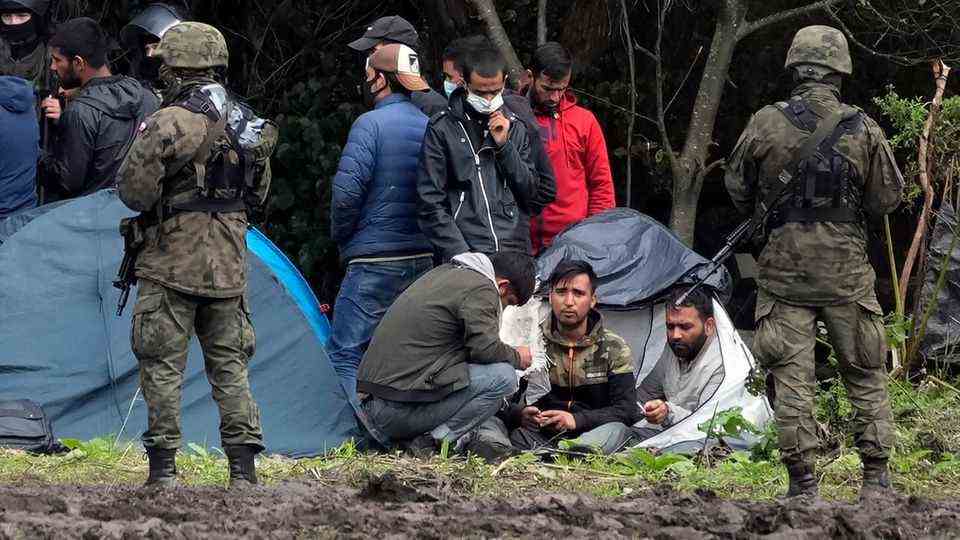Federal Minister of the Interior
Seehofer on illegal entry via Belarus: “Migrants are used as political weapons”
Federal Minister of the Interior Horst Seehofer (CSU)
© Wolfgang Kumm / DPA
Federal Interior Minister Horst Seehofer (CSU) sees an urgent need for action in refugee policy shortly before the end of his term in office. With regard to Belarus, Seehofer spoke of a “hybrid threat”.
Federal Interior Minister Horst Seehofer (CSU) has accused Belarus of “state-organized, at least supported, smuggling activities”. With a view to the increased number of unauthorized entries into Germany via Belarus and Poland, Seehofer said after a meeting of the Federal Cabinet on Wednesday that it was “a form of hybrid threat” by using migrants as a political weapon. That is “a big problem that we can only solve together in the European Union.”
The German government and the EU are accusing Belarusian ruler Alexander Lukashenko of deliberately smuggling refugees from the Middle East and Africa into the EU. The motive is therefore retaliation for European sanctions directed against human rights violations in Belarus. According to the Federal Ministry of the Interior, 5,700 refugees who came via Belarus have already been registered at the German-Polish border this year.
“We briefly discussed closing the border today, but no one intends to close it,” said Seehofer, who informed the federal cabinet of the current situation. Border controls with Poland are also not planned. Such a step would also be “legally questionable”. Seehofer emphasized that Poland had already taken “very strong initiatives” to prevent the entry of refugees from Belarus.
Seehofer announced further efforts to work with the EU to prevent airline flights with refugees to Belarus. In the case of Iraq, there is already a corresponding commitment by the end of the year, he said. However, the government in Belarus recently allowed visa-free entries from other countries such as Iran, Pakistan, South Africa, Egypt and Jordan.
Seehofer emphasized that the German government is of the opinion that ultimately “the key to solving the problem lies in Moscow”. Russia is a close ally of Belarus, which is economically heavily dependent on Moscow.
Seehofer checks controls when entering from Greece
In addition, Seehofer sees an urgent need for action in refugee policy shortly before the end of his term of office. He said that because of the high number of refugees recognized in Greece who applied for protection again in Germany, his house is now examining the possibility of introducing border controls for flights from Greece. “That would be a very effective measure, which I will also take if we do not come to a joint approach with Greece,” said Seehofer.
According to a report by his ministry, which is available to the German Press Agency, the number of people who are hidden in trucks in the European Union has recently risen sharply.
The so-called Dublin procedure, according to which a person seeking protection must submit an application in the EU country where he was first registered by the authorities, does not work, according to the report, the content of which Seehofer reported in the cabinet. According to this, only one asylum seeker was transferred from Germany to the responsible EU member state Greece in the first nine months of this year – with over 7,100 requests for takeover. According to the Dublin rules, only 158 people were brought to Italy with over 4,000 inquiries from the German side.
In the case of Greece, living conditions usually prevent asylum seekers from being returned. Because German courts have found that those seeking protection are threatened with homelessness and hardship. The Federal Ministry of the Interior is therefore urging the Greek government to accept German support for the accommodation and care of refugees in Greece and to implement a corresponding declaration of intent.
Regarding the increased number of unauthorized entries into Germany via Belarus and Poland, the report states that these people were “often lured to Belarus under false promises and, according to reliable information, are often prevented from escaping from the border area to safety by Belarusian officials to return to their homeland “.



